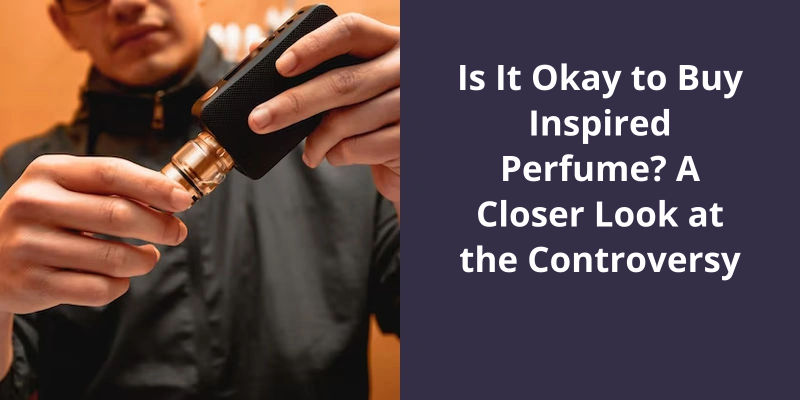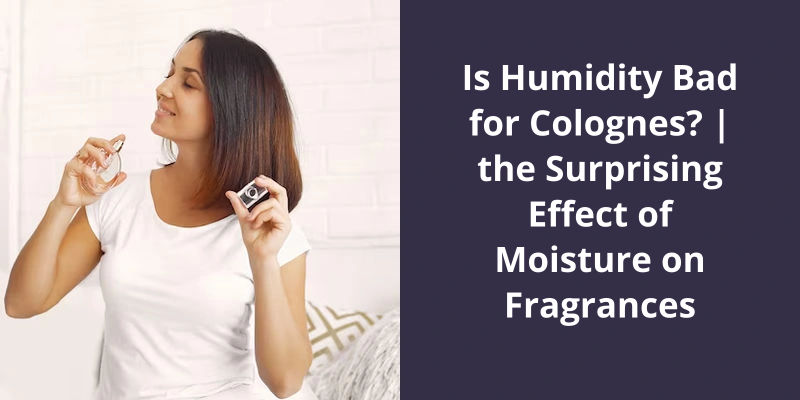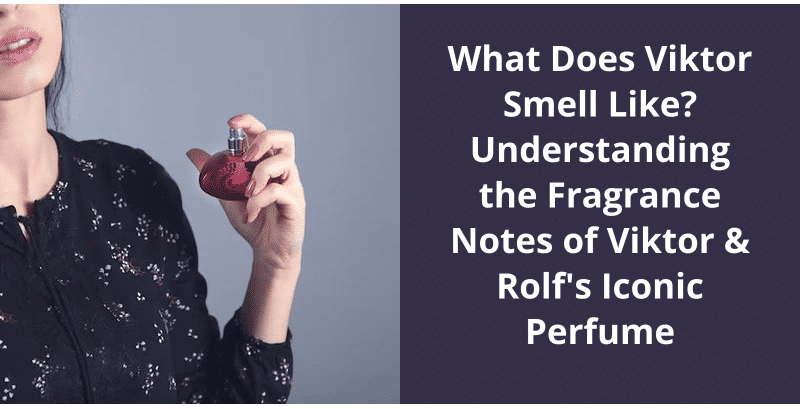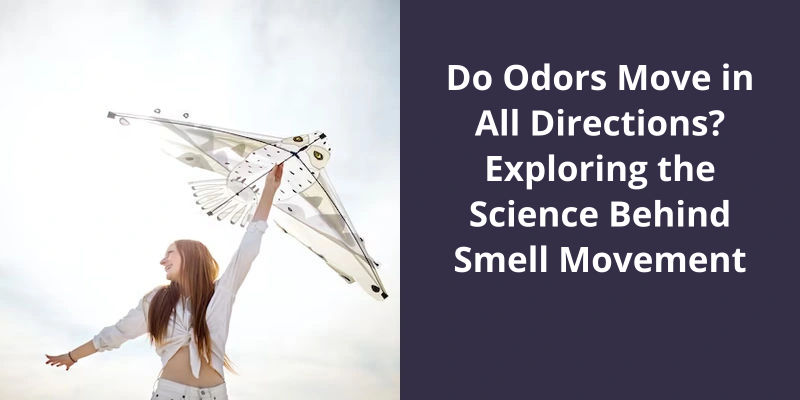Buying inspired perfume is generally agreed to be a personal choice. If you find a scent you love but perhaps can’t afford the original, choosing an inspired option can be deemed acceptable. It’s a cost-effective way to enjoy a luxury smell, and many inspired fragrances do a fantastic job of emulating the original scent. However, it’s important to remember that inspired perfumes often use different or cheaper ingredients and may not last as long as the original. While it’s not illegal to buy or sell inspired perfumes, from an ethical standpoint, if you wish to support original designers and their creations, you might prefer to save up for the original.

Are Inspired by Perfumes Worth It?
Are inspired perfumes worth it? Inspired perfumes (also called perfume dupes or smell-a-likes) are cheaper alternatives for original perfumes from well-known, high street brands. In terms of quality, they can be as good as the original fragrances. The scent stays on the skin for a long time, and the fragrance notes are released in the same way.
However, there’s a controversy surrounding the purchase of inspired perfumes. Some argue that buying inspired perfumes is unethical as it undermines the original perfume brands and their creativity.
Critics of inspired perfumes also raise concerns about the safety and quality of these products. They argue that since inspired perfumes are often produced by smaller, lesser-known brands, there may be a lack of regulation and quality control. This can potentially lead to the use of inferior ingredients or even harmful substances in the production of these perfumes.
Watch this video on YouTube:
Perfume scents have the potential to be protected through patent rights, as they’re considered a man-made composition of matter. Meeting the necessary criteria for patentability allows fragrance creators to secure exclusive rights over their unique scents.
Can Perfume Scents Be Patented?
Can perfume scents be patented? Yes, you can.
To obtain a patent for a perfume scent, the scent must be unique, non-obvious, and useful. This means that the scent must be something that isn’t already in the public domain and must have a practical application.
It requires a detailed and comprehensive analysis of the scent, including it’s chemical composition and the process used to create it. Furthermore, the fragrance industry is highly competitive and constantly evolving, making it difficult to keep a scent secret and exclusive for an extended period.
Instead of patenting perfume scents, many fragrance companies rely on trade secrets and trademarks to protect their creations. Trade secrets can provide protection for the formula and manufacturing process of a scent, as long as it remains confidential. In contrast, trademarks protect the brand name and packaging of a fragrance, but not the scent itself.
The controversy surrounding inspired perfumes arises from the fact that these perfumes are often created to mimic the scents of high-end designer fragrances without obtaining any licensing or permission. While inspired perfumes may not infringe on any patents, they can raise issues of trademark infringement if they use similar brand names or packaging.
The Challenges of Patenting Perfume Scents and Why Many Companies Rely on Other Forms of Protection
- The complex nature of patenting perfume scents
- The subjectivity and inherent difficulty in describing scents
- The lack of established criteria for evaluating scent patents
- The high cost and time-consuming process of securing scent patents
- The risk of reverse engineering and replicating perfume scents
- The alternative forms of protection, such as trademark and trade secret
- The branding and marketing strategies as alternative protection methods
- The importance of maintaining secrecy and confidentiality of scent formulations
- The challenges in enforcing scent patents and proving infringement
- The influence of cultural perception and personal experience on scent recognition
When it comes to purchasing perfume, counterfeit replicas may seem like a tempting option due to their lower prices. However, it’s important to consider the potential risks associated with these products.
Is It Safe to Buy Replica Perfume?
When it comes to the controversy surrounding the purchase of replica perfume, one can’t ignore the fact that these products aren’t only illegal but also pose several risks to consumers. Firstly, counterfeit perfumes often contain harmful substances that can have adverse effects on the skin and overall health. These substances can include high levels of alcohol or toxic chemicals, which may cause allergies, irritations, or even more serious dermatological issues.
Furthermore, purchasing replica perfumes means compromising on quality. These counterfeit products are usually made with cheaper ingredients, resulting in a shorter lifespan and a less desirable fragrance experience. Original perfumes undergo meticulous development and testing processes to ensure that they meet high standards of quality and longevity. Buying replicas means missing out on the unique characteristics and complexities of the original fragrance, which are carefully crafted by skilled perfumers.
To avoid falling prey to counterfeit perfume scams, it’s essential to buy from reputable sellers who guarantee the authenticity of their products. Authorized retailers and reputable online platforms extensively vet the products they sell, ensuring that customers receive genuine perfumes. These sellers often have established relationships with fragrance brands, exhibiting a commitment to offering customers only authentic products.
Additionally, educating oneself about the packaging and branding details of the original perfume can be helpful in detecting replicas. Counterfeit products may have misspelled brand names, poor quality packaging, or even slightly altered bottle designs. Being attentive to these details can prevent purchasing counterfeit products unknowingly.
Being knowledgeable about the original products packaging and branding details can also help in avoiding counterfeit products.
They’re created by different brands using their own formulations and ingredients, but strive to replicate the scent of a well-known perfume. The intention behind perfume dupes isn’t to deceive customers into believing they’re buying the original fragrance, but rather to offer an affordable alternative that captures a similar aroma. So, are perfume dupes illegal? Let’s delve deeper into the topic and analyze the legality of these much-loved alternative scents.
Are Perfume Dupes Illegal?
Dupe is short for duplicate, and in the world of perfumes, it refers to a scent that closely resembles a popular fragrance but is made by a different brand. While some may argue that creating perfume dupes is unethical or even illegal, the truth is that it’s perfectly legal as long as copyright laws aren’t being infringed upon.
Perfumes can often be quite expensive, and dupes allow people to enjoy similar scents without breaking the bank.
This opens up a whole new world of scents and possibilities for perfume enthusiasts, as they can explore different variations and find what works best for them.
Ultimately, the decision to purchase a perfume dupe is a personal one.
Source: Smellalikes, Dupes, and Clones from a Legal, Business …
Conclusion
In conclusion, after examining the controversy surrounding the purchase of inspired perfume, it’s clear that there’s no definitive answer, as opinions on this matter vary greatly. Additionally, the affordability and accessibility of inspired perfumes allow individuals from different socioeconomic backgrounds to enjoy luxury fragrances without breaking the bank. Ultimately, the decision to buy inspired perfumes boils down to personal values, willingness to support original creators, and the importance one places on authenticity.





